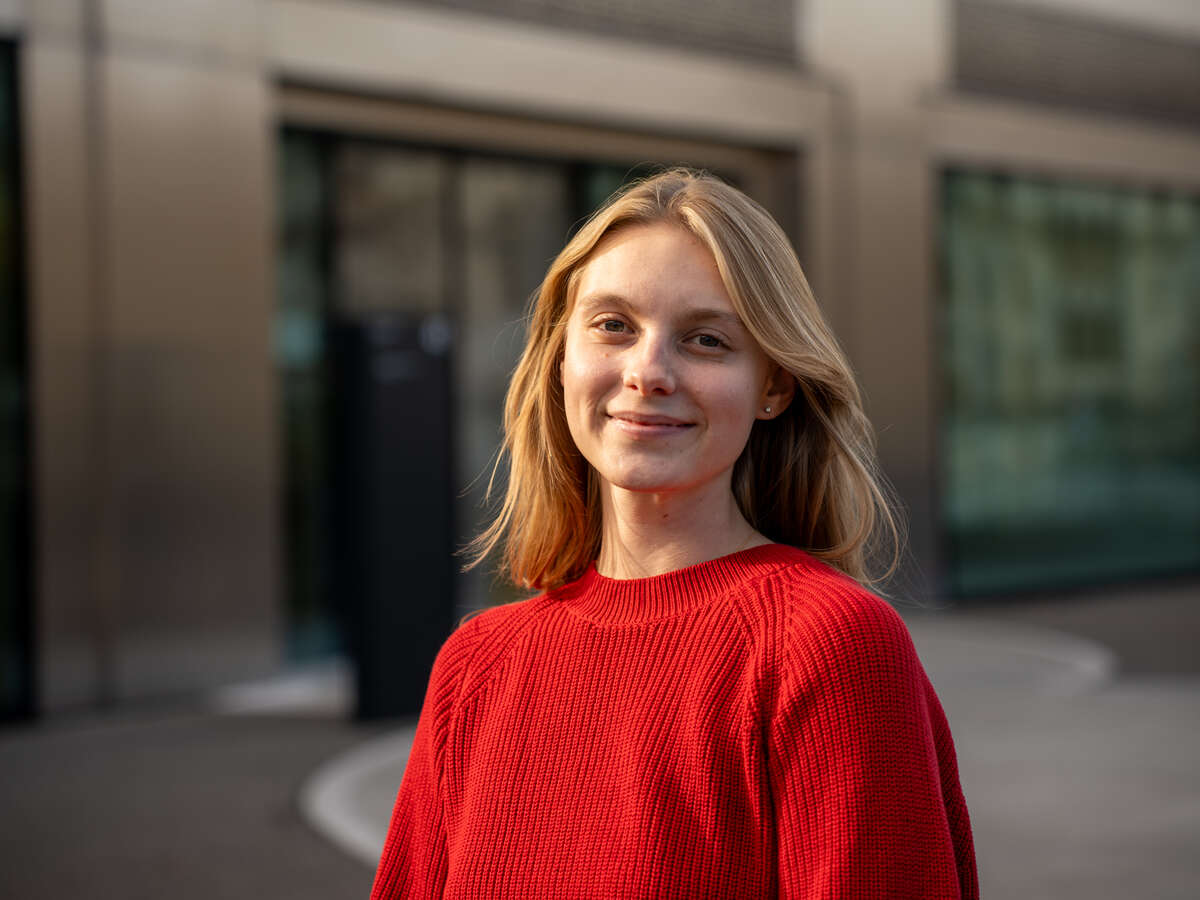Cindy Seibt: «I understand now how theory and lab work connect»
Cindy studies biology at the Biozentrum because she wants to understand how life works – from the brain to complex processes in nature. With increasing practical experience, particularly through hands-on lectures, she's realizing how theory and everyday lab work connect. For Cindy, studying biology means developing scientific thinking step by step, trying out new methods, and growing within a supportive international community.

Why did you choose to study biology?
I study biology because many aspects of the subject fascinate me – especially the complex interplay within the human body and how the brain functions. At the same time, I'm a nature lover and find it enriching to learn more about the mechanisms and connections in nature. This knowledge not only deepens my understanding of life itself but also strengthens my appreciation for the diversity and complexity of nature.
How did you experience starting your studies? What did you expect and what was reality like?
Admittedly, I found the start of my studies somewhat surprising and a little sobering at first. I had expected the biological components to be more prominent from the beginning, and was therefore a bit disappointed to find that subjects like mathematics, physics, and chemistry dominated the first year. Of course, a solid foundation in these areas is fundamental for understanding biological processes. Nevertheless, I had hoped that biology itself would have been given more space.
From theory to practice, how do you experience the process of experimental work?
I generally find it easier to memorize and understand theoretical content than to interpret experimental data, especially if I lack background knowledge or experience in a particular area. Nevertheless, I really enjoy conducting my own experiments and developing the results myself, rather than just repeating theoretical knowledge. At the same time, I regularly find this work challenging, as it requires a deeper understanding and a lot of practice. But that's precisely what makes it so exciting.
How are you consolidating this practical experience in the EMB (Experimental Molecular Biology) course?
Through the independent practical work of the EMB course, methods and principles are anchored in memory much more effectively than if they are only presented theoretically. I had this experience particularly with pipetting: at first, I thought, "This is really easy." But when we actually practiced the technique in the lab, I quickly realized how valuable this practical exercise was. There are numerous little tips and tricks, depending on the properties of the liquid, that you don't even notice in theory, but are crucial in practice.
Would you say this gives you confidence in starting your own research?
I don't quite feel like I'm doing real research yet. At the same time, I'm very grateful to have a protocol to guide me, which gives me security and structure. It's still a bit early for me to do independent research, but perhaps that will change as the EMB course progresses. Even so, the course is already providing a very good insight into the processes and ways of thinking involved in scientific work.
How important are elective courses and interdisciplinary aspects to you?
Personally, I am fascinated not only by biology but also by psychology, especially the interplay between the two disciplines. However, I have noticed that there are currently only a few biology lectures that directly link biological mechanisms with psychological questions.
And how do you experience student life at the Biozentrum?
At the university, I have met wonderful people and friends with whom it is a pleasure to attend lectures and exchange ideas on both academic topics and personal matters. Due to Basel's location on the border with France and Germany, there are many international students at the university. I find it particularly enriching that so many different nationalities and languages are represented at the Biozentrum, which creates an open and diverse learning environment.


